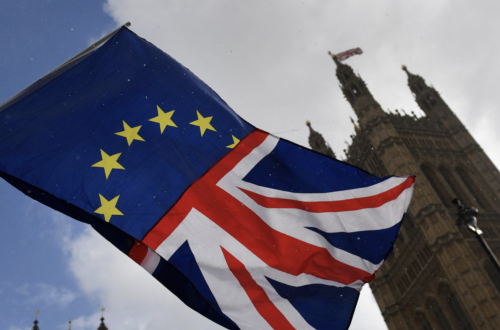On several threads recently the subject of treating characters from history as if they lived in the present day has been raised. Winston Churchill is always good for an argument about both his philo and anti semitism. Pius XII is criticised for his inaction in the face of the holocaust and attempts are then made to ‘rescue’ him by showing that he attempted to help certain groups of people. Nagasaki and Hiroshima are argued over as if it is us in the present day agonising over whether to put an end to the war by dropping the bomb.
This sort of thing has a long history itself and so I have gone into ‘the vaults’ (if Michael Ezra will forgive me for borrowing the title of his long-running series of interesting posts) to find an example from Oswald Mosley’s ‘Blackshirt’ Newspaper. On the surface it is hardly surprising that British fascism should try to appropriate Shakespeare. The BUF were always torn two ways between ‘traditionalists’ who saw Britain being in steady decline from the golden age of Elizabeth 1 and modernisers who derived their vision of a corporate state from Marinetti’s futurism and Walter Rathenau’s rationalised planning during WW1. Kathleen Texera’s article is an example of the former tendency; emphasising ‘love of country’ and ‘loyalty to the crown’. As the far-right splits yet again with Lee John Barnes’ attacks on Nick Griffin we may choose to see curious echoes of the past in the man from the ‘Thames Gateway’ attacking his leader for being a rural pig farmer. The important question here though is ‘was Shakespeare a fascist’? And the answer, surely, is that even the bard himself was not able to resist the odd anachronism – such as the clock striking in ‘Julius Caeser’. I wonder who else from the past you have seen recently being appropriated by political parties of any stripe?
From: THE BLACKSHIRT April 18, 1935
SHAKESPEARE WOULD HAVE BEEN A FASCIST by KATHLEEN TEXERA” Come the three corners of the world in arms,
And we shall shock them.
Nought shall make us rue
If England to itself do rest but true.”Shakespeare would have been a Fascist. The keynote of all his plays is loyalty. When he says “I do love my country’s good with a respect more tender, more holy and profound, than my own life,” he expresses the ideal of all Fascists. Had he lived now, what a contempt he would have felt for the self-seeking Communists “. . . common cry of curs that they are.” With his usual clear-sightedness he realises that England’s strength lies in her unity. “This England never did nor never shall Lie at the proud foot of a conqueror, But when she first did help to wound herself.” So it behoves other less patriotic societies, when Fascists march on London, to realise the utter necessity of fidelity; and if they have not got the common sense to agree with us, at least not to try to impede our progress.
LOVE OF COUNTRY
Who has not seen intense and selfless love of country in John o’ Gaunt’s speech Beginning ” This royal throne of kings, this sceptre isle, This earth of majesty, this seat of Mars, This other Eden, demi-paradise, This fortress built for nature by herself, Against infection and the hand of war “? Blackshirts recognise in their struggles the truth of ” in the reproof of chance lies the true proof of men.”LOYALTY TO THE CROWN
Shakespeare who wrote: ” To reap the harvest of perpetual peace by this sharp trial of war ” knew that nothing could be achieved without a struggle. He lived in a time when loyalty reigned supreme. We have not an absolute monarchy now, but no king could be more ” clear in his great office” than George, ” that mirror of Christian kings,” nor more worthy of Shakespeare’s lines. ” There’s such divinity doth hedge a king That treason can but peep at what it may.” Great writers, in all times, have upheld patriotism. It is only the small and mean spirited who think a nation can exist in greatness without loyalty.


